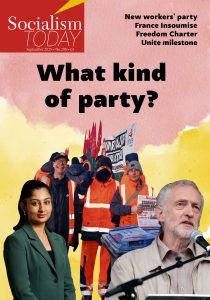
Whatever the exact course events might take in the weeks and months ahead, the possibility of the development of a new, mass vehicle of independent working-class political representation is now part of the consciousness of all classes in Britain, as the multi-faceted crises of capitalism unfold.
This is the indelible result of the appeal made by Jeremy Corbyn and Zarah Sultana on July 24 to join in the founding of “a new kind of political party”, based on “a mass redistribution of wealth and power” against the “rigged system”.
Read more